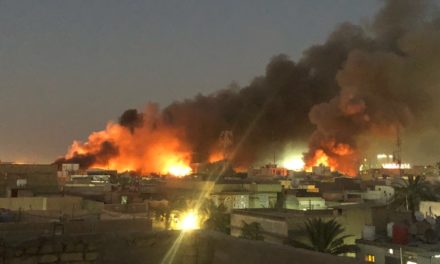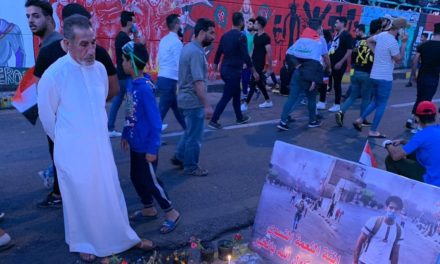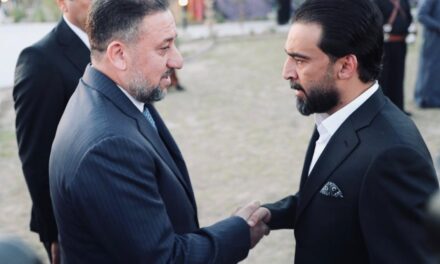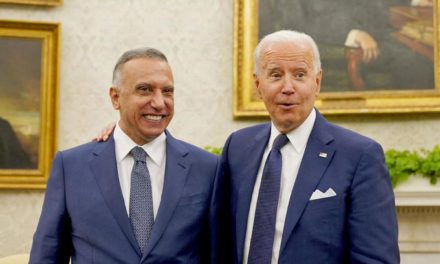The Middle East is one of the wealthiest regions in the world in terms of its immense natural resources and wealth. Disputes over them plague the region. Armed conflicts, economic and political turmoil, and falling oil prices have caused many of these disturbances. Hence, Middle Eastern countries, like Iraq, suffer from very high market instability. Most multinational companies are not attracted to such countries because of these reasons. At the same time, Iraq’s market is very large and is well positioned in the Middle East (Bloomberg, 2015). There have also been some recent events that illustrate the government is actively working to tackle such issues. The country is investing in domestic projects to ensure economic stability, which is likely why Iraq faces a high inflation rate, which again, is not attractive for direct foreign investment. The government is actively working with the Central Bank of Iraq to reduce high inflation rates.
In addition, the Iraqi government has started investing in the private sector, which will create new jobs in the coming years. Iraq’s biggest industry is oil and the large number of oil processing units that accompany it. Iraq has the potential to earn 5 trillion USD in oil revenues in the coming 22 years (International Energy Agency, 2012). The service sector also accounts for approximately 50 percent of Iraq’s economy and employs nearly half of Iraq’s total working population. Government and banking are two of the biggest segments within the service industry (Iraqi Central Organization for Statistics, 2016). These robust business ventures in various sectors on one side, and the never-ending turmoil on the other side, provide a puzzling situation for investors, who want to expand operations in Iraq.
Iraq has the fifth largest economy in the Middle East and the 47th largest in the world. The vast oil reserves make the country even richer and a good investment opportunity for Foreign Direct Investment (FDI). In 2014, FDI was valued at 221.1 billion USD, with a growth rate of 1.3 percent in 2015. Iraq is the 10th largest oil and natural gas reserve country, with 95 percent of revenues coming from the energy sector. These figures indicate that there are big opportunities for economic growth in the country for businesses. The instability in oil prices however, remains a major concern, which tends to affect the inflation rate.
Apart from the oil market, the country also needs economic diversification in various areas such as retail, education, technology, housing, food processing, tourism and financial services, among others. As revealed by BMI Research (2016), Iraq will remain in recession in 2016. The domestic expansion would move at a snail’s pace. Capital formation would also be tough for the country due to declining oil prices, political instability, and consumer spending will be uneven. The region will be most unsafe for foreign investments due to the threat of ISIS. However, it is believed that due to the potential oil and gas business, the region presents opportunities for investment and trade. The current oil export stands at $10 billion IRD. The BMI research also revealed the presence of more resources such as minerals, gold and platinum, estimating Iraq to have the potential to be one of the wealthiest nations in the world, were it not for so many wars and violence.
In terms of security, as per BMI index of security and crime, Iraq scores the lowest in the MENA regionand the fourth lowest across the globe, with a score of 6.6 out of 100, making it the most dangerous nation in the area. Other countries included in danger zones are Afghanistan, Syria and Sudan. Iraq’s economy is solely dependent on world oil prices and has been accounted only on its ability to produce more oil and gas. Its GDP has been showing uneven figures since the last two decades, with 3,501 USD in 2011. A recent estimate, however, revealed that Iraq has the fastest growing economy in the Middle Eastern region, with an estimated annual growth of 9.4 percent, expected throughout 2016 (Middle East Economic Survey, 2016). The GDP growth of the country was 9 percent in 2013 (Irinews, 2013). The youth unemployment rate in Iraq is higher than 25 percent. The contribution of the agriculture sector accounts for only 3.3 percent of the total GDP, with labor forces engaged in the sector accounting for almost 21.6 percent. The petroleum industry’s contribution to the GDP is nearly 65.6 percent (Cordesman, 2015).
But what does that mean for Iraq?
I think Iraq is moving towards recovery, and I would argue that it has seen its worst days. I mean many people would analyze or envisage the collapse of Iraq, because of the recent political dynamic or due to the ISIS issues. I disagree with that, in fact, despite all the challenges Iraq witnessed the past 13 years but, 13 years radical regime change is nothing compared with any dynamics that any country would have to face in its journey to democracy. So, yes it is going to take some time not as many centuries as it took the United States or Europe to their journey to today’s democracy, but surely 20 to 30 years, it is a gradual development.
What is your view on Iraq’s economic development?
It is going to take years to develop, 95% or more of the state revenue depends on oil revenues, and it is a state that pays most of its income to salaries. It is a gigantic social security department, so without having a market economy well defined and developed in Iraq, I am afraid it could face under the curse of the oil prices and the level of oil production, and basically how appealing our oil and offering to the market. So, it is quite challenging so, we need economic diversity and this requires some radical and surgical economic reform in the whole state. Very aggressive decision has to be taken and, it may not please anyone. I mean you cannot please everyone when it comes to reform. The reforms include cutting salaries significantly, getting rid of influential people; unnecessary positions and reducing the government back to act like administrators.

Ahmed Al Kaabi
Iraqi business analyst living in Europe.










